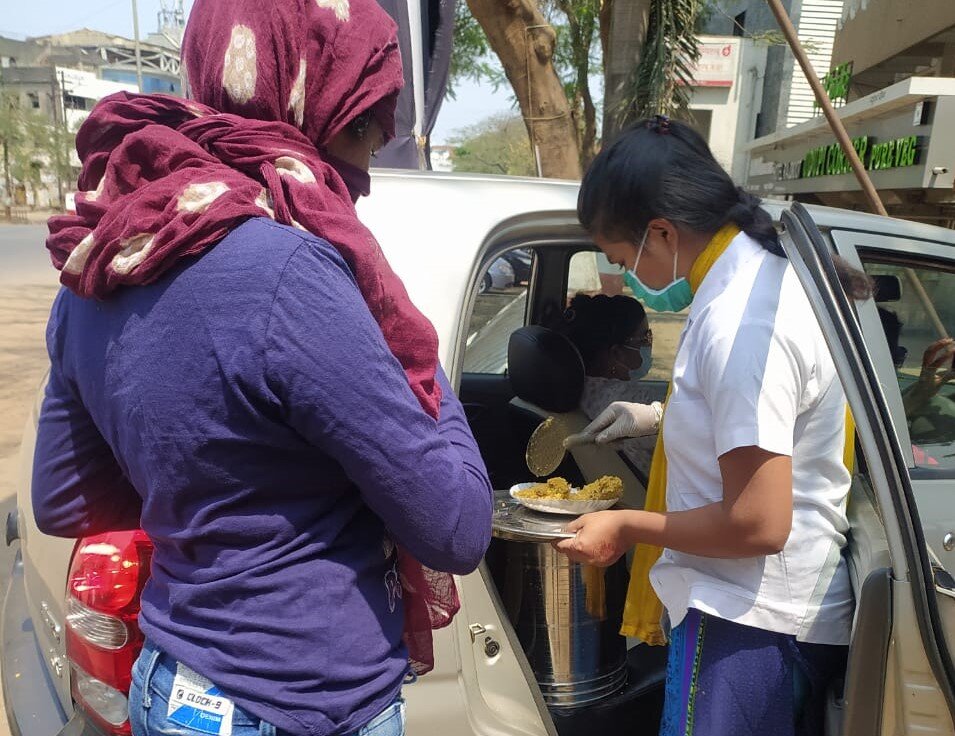Community-centred Media Responses to COVID-19
Updated 15 April 2020
Community-centred media is HCR’s primary tool for equipping communities to overcome crisis or disadvantage. This remains the case in the Covid-19 crisis.
HCR staff and partners all experienced travel restrictions. This affected international travel to support partners face to face. It also affected partners’ local travel, and the capacity to be present in the communities they serve. We adapted to these restrictions by asking how our strengths could best be used in the communities we are located in.
In several places, including the UK, this meant boosting the local volunteer workforce and providing communications advice to local community organisations and to faith-based groups that we belong to (community resources here). We have shared our experience in community-centred communication with international organisations, such as Tearfund, who are rapidly adapting to engage with communities from a distance (more resources here).
Our partners have taken a two-pronged approach in their community-centered media responses to Covid-19: on-air and off-air activities.
Please consider giving to help cover our partners’ additional costs for responding the Covid-19 crisis response.
Covid-19 RESPONSE: ON-AIR ACTIVITIES
Our partners are operating in different contexts but have similiar content objectives:
Providing information and educational content so that community members -
know the official government measures being taken to prevent Covid-19 spreading.
have a place to report rumours and verify facts vs misinformation.
know how and why they should implement those measures in their own contexts.
Building social consensus for difficult physical distancing measures through -
giving opportunities for local people to voice how they felt about the changes. Eg, the changes seemed unnecessary to some community members, as the disease had not affected their area.
advocating for emergency relief. The measures meant hunger and hardship. Many people were not interested in information or advice about social distancing practices - they wanted to know how they get food for their families for today.
Fostering hope and communal healing by -
sharing encouraging stories or messages.
providing uplifting music.
keeping longer term ‘life after Covid-19’ plans and opportunities in view.
conversations and opportunities for community members to voice sense of grief/ loss.
providing mental health advice and counselling opportunities.
Partners using FM radio stations have incurred additional costs to purchase extra airtime (eg. Pakistan), or because of the loss of local content sponsors due to reduced economic activity (eg. Kenya).
Partners distributing content on SD cards have incurred extra travel costs where they are still able to travel to communities (eg. Northern Uganda). This is because physical distancing measures rule out the cheaper Boda Boda (motorbike taxi) transport option.
Covid-19 RESPONSE: Off-Air activities
In normal times HCR project partners collaborate with local service providers who have the expertise to carry out ‘off-air’ activities. However rapid acceleration of lockdown measures in several countries has restricted normal ‘off-air’ mechanisms and left many daily wage earners very vulnerable. In response, some HCR partners are working with local community leaders to identify the most at-risk community members and support them directly with emergency food rations or other essential items.
Our partners in India, SEVA, could not travel to the community where they normally work, so they turned to address the needs they heard in the neighbourhoods around their office. This included serving meals to vulnerable people, including those living on the street. Swapping digital media for face to face communication, the SEVA team found that many of the people they served did not know about Covid-19 or its symptoms. SEVA provided meals along with Covid-19 information and advice.
In Pakistan, the Naway Saher team tried to initiate community dialogue about the Covid-19 measures. Many people said they did not want to be discuss the situation, they just wanted food for their families. Naway Saher took their recordings of people’s concerns to authorities via a WhatsApp group who responded with advice on how to register for food relief. However, official relief operations are proving slow, so HCR also supported Naway Saher to provide emergency ration packs to the most vulnerable families in their community. Naway Saher used a local food wholesaler who agreed to reduced food prices in return for Naway Saher endorsing his business in the radio programmes.
In Northern Uganda, the Soot Semee team distributed hand sanitiser and face masks to listener groups along with the weekly podcasts on SD cards. They also worked with local community leaders to identify ways for groups to listen to the content safely, following government rules for distancing between households.













